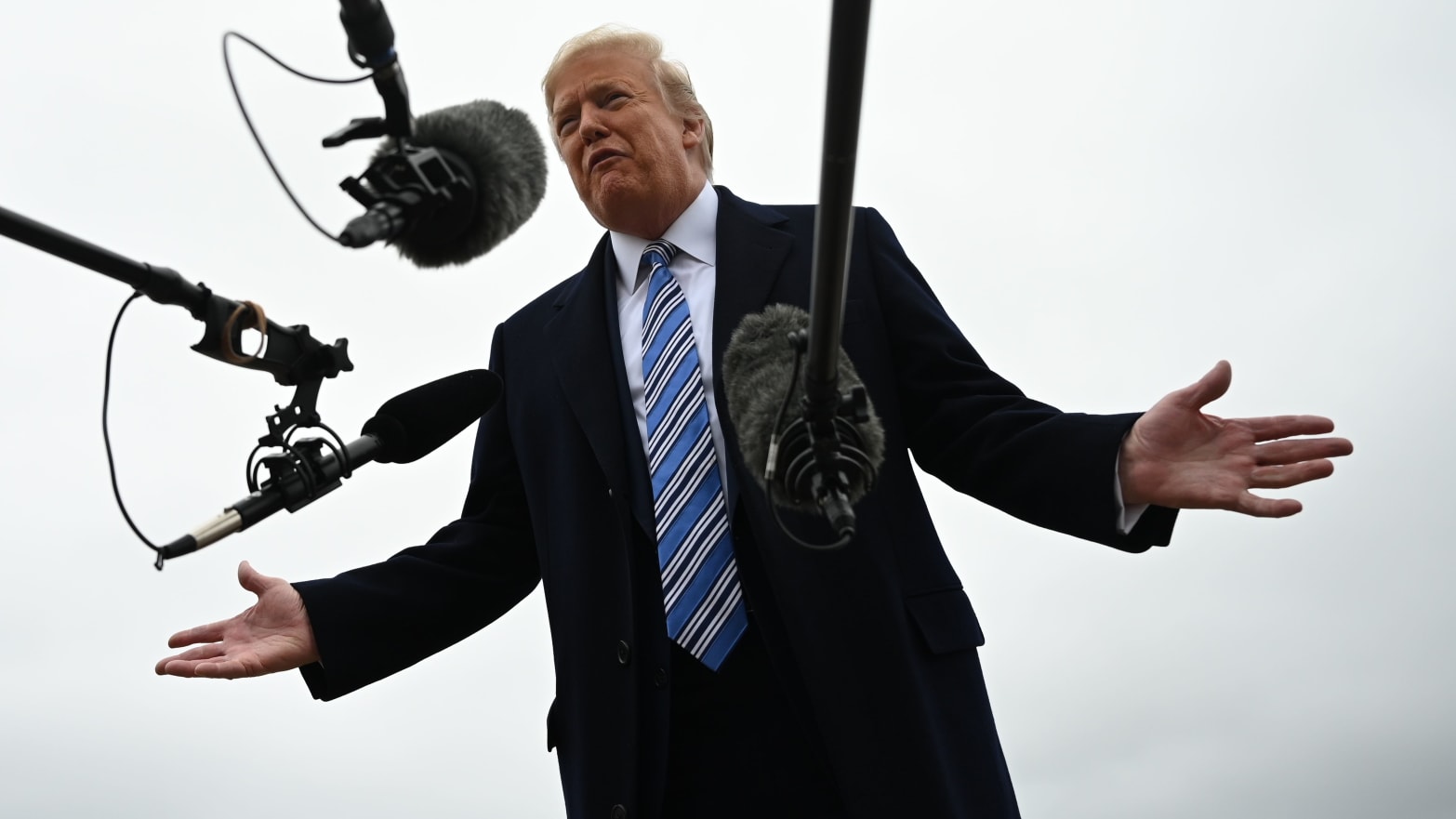President Trump appeared to back down late Saturday on the idea of imposing an enforceable quarantine on coronavirus hot spots like New York, deeming the measure “not necessary” just hours after he sparked criticism for floating it as an option.
“On the recommendation of the White House CoronaVirus Task Force, and upon consultation with the Governor’s of New York, New Jersey and Connecticut, I have asked the @CDCgov to issue a strong Travel Advisory, to be administered by the Governors, in consultation with the Federal Government,” Trump tweeted on Saturday evening.
“A quarantine will not be necessary. Full details will be released by CDC tonight. Thank you!”
The CDC later released a travel advisory urging New York, New Jersey, and Connecticut residents to avoid “non-essential domestic travel” for 14 days.
The announcement came shortly after New York Gov. Andrew Cuomo warned against the proposed quarantine of “hot spots,” saying it would be nothing short of a “federal declaration of war” that would pit state authorities against the federal government.
“It wouldn’t just be New York, New Jersey, Connecticut. Next week it would be Louisiana with New Orleans, and the week after that it would be Detroit, Michigan, and it would run all across the nation. I don’t think the president is looking to start a lot of wars with a lot of states just about now for a lot of reasons,” Cuomo said in an interview with CNN.
In addition to such a quarantine likely being illegal, Cuomo said, it would cause “chaos” and “mayhem” and only make matters worse during the coronavirus pandemic.
The governor said he had not spoken with Trump after the president announced the possibility of a short-term enforced quarantine on “hotspots” of the novel coronavirus, including New York state, New Jersey, and some parts of Connecticut.
Immediately after Trump voiced the proposal, Cuomo appeared frustrated with the idea of an enforced quarantine (“I don’t know what that means”) and said the president had not discussed the matter with him when they spoke on Saturday morning.
“I don’t know how that could be legally enforceable and, from a medical point of view, I don’t know what you would be accomplishing,” Cuomo added. “I don’t even like the sound of it, not even understanding what it is.”
Trump told reporters on the White House lawn on Saturday that he had spoken to Florida’s Republican Gov. Ron DeSantis, who had complained about New Yorkers traveling south—and bringing coronavirus with them.
“A lot of the states that are infected but don’t have a big problem, they’ve asked me if I’ll look at it so we’re going to look at it,” Trump said.
“We’re thinking about certain things. Some people would like to see New York quarantined because it’s a hotspot. We might not have to do it, but there’s a possibility that sometime today we’ll do a quarantine, short-term, two weeks on New York. Probably New Jersey, certain parts of Connecticut. I’d rather not do it, but maybe we need it.”
The president doubled down on his suggestion in a tweet on Saturday afternoon and in remarks at a Virginia naval base, where he was seeing off the naval hospital ship, Comfort, that is heading to New York.
“This does not apply to people such as truckers from outside the New York area who are making deliveries or are simply transiting through,” Trump said. “It won’t affect trade in any way.” He added that “a decision will be made, one way or another, shortly.”
The question of whether the federal government has the power to impose restrictions on states has been a source of speculation since the virus has spread throughout the country.
Federal laws give the Centers for Disease Control and Prevention (CDC) the authority to prevent the spread of communicable diseases between states by limiting the movement of people who are “reasonably believed to be infected with a quarantinable communicable disease.” However there is no law that grants the president authority to prevent an entire nation’s movements, NBC News reported. Any attempt to do so would likely be challenged in court.
Dr. Anthony Fauci, the director of the National Institute of Allergy and Infectious Diseases and a member of the White House coronavirus task force, has expressed his support for a potential 14-day national shutdown to slow the spread of the virus. “I think Americans should be prepared that they are going to have to hunker down significantly more than we as a country are doing,” Fauci said, stressing the importance of social distancing in the fight against the virus. The top infectious disease expert, however, has not provided any explanation for what such a plan could look like or how it could be carried out.
Michael Ulrich, a public health law professor at Boston University, said the federal government would “have to be able to justify that some group is a credible threat to others, and that’s an easier thing to do on an individual level.” He added that it would be “a really hard thing to prove.”
Rep. Justin Amash (I-MI), a former Republican who has been a fervent critic of Trump, questioned his power to implement such an order. “Under which authority?” Amash wrote on Twitter on Saturday.
As of Saturday, New York reported at least 52,318 cases of the novel coronavirus, with over half in New York City and at least 7,328 in hospital. Coronavirus cases in the United States crossed the 100,000 mark on Friday, making it the new global epicenter of the pandemic.
New Jersey reported at least 8,825 cases of the virus, and 108 deaths as of Saturday, while Connecticut confirmed at least 1,291 cases and 27 deaths, according to the Johns Hopkins University & Medicine tracker.
